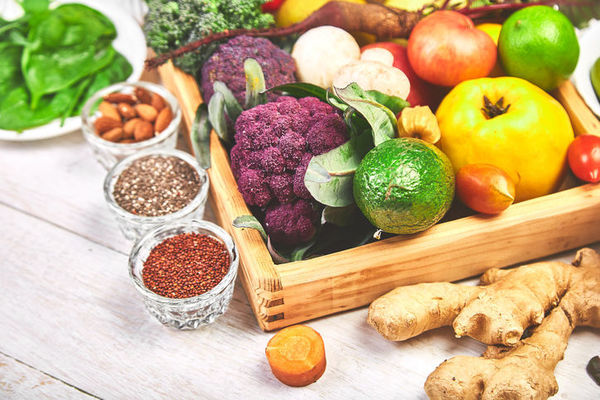
As we all come back together for a Notre Dame semester like no other, one collective goal we have is to stay strong, stay well, and should we be exposed or become ill from Covid-19, give our body the tools to rebound quickly. Luckily, there is a lot we can do to support ourselves both from nutritional decisions we make with our forks everyday, to simple self care strategies.
Beginning with a favorite subject for many of us, food, let’s outline basic nutritional pieces that can make a difference. Think of food not only to satisfy your hunger, but to also fortify your immune system. Not to sound like a broken record, but plants need to form the foundation of most of our diets including vegetables, fruits, herbs, and spices. Vegetables are the most important, and we need to strive for at least 2 ½ cups per day. Fruits are important, but to a lesser extent mainly because of the sugar content; 1 to 2 pieces a day is a good goal. Besides providing thousands of phytonutrients, plants are anti-inflammatory, a very desirable effect for what we know so far about the body’s immune response to Covid-19. Thinking in particular about foods that have antiviral properties, we are talking about spices such as garlic, ginger, oregano, and basil. Cruciferous vegetables such as broccoli, cauliflower, cabbage, kale, and brussels sprouts decrease inflammation and boost our immune systems. They also do something extra special which is to increase our levels of nitric oxide in the blood which helps deliver more blood flow to the lungs. Also, strong levels of zinc in the body have been found to be effective when dealing with the coronavirus. Foods high in zinc include red meat, shellfish, legumes, seeds, nuts, eggs, whole grains, and dark chocolate. Finally, use extra virgin olive oil as part of your salad dressing; EVOO has known anti-inflammatory benefits.
Another route to bolstering our defenses comes from lifestyle approaches and supplements. Most of us are familiar with melatonin for its role in helping promote sleep, but it also has some anti-inflammatory and immune modulating effects, particularly in the lungs, making it a great supplement to consider. A study published this summer showed that as little as 0.5 to 1 mg before bed is all that is needed to reduce acute respiratory distress syndrome and acute lung injury. Similarly, the activities we participate in that inhibit melatonin production, i.e., blue light exposure from our phones and computers need to be considered and limited. A couple of strategies include wearing blue light blocking glasses later at night when using electronic devices and trying to get early morning sun exposure without sunglasses. Another great supplement in these times is Sambucus from the elderberry plant. It is a well-known antiviral supplement and is especially effective as a daily preventive or taken early on after exposure or infection. Additionally, vitamin D is a proven immune booster, and since it is hard to get enough through one’s diet, I recommend individuals consider taking about 2,000 IU daily.
The above recommendations are obviously on the heels of the other standard recommendations of wearing our masks, washing our hands, and trying to stay physically distant as much as possible. This is a time in our history that most of us would like to wish away. Let’s all do our parts, hold our peers accountable to doing their parts, and trust that this too will pass with valuable lessons on the other side.
References
Zhang, Rui, et al. “COVID-19: Melatonin as a Potential Adjuvant Treatment.” Life Sciences, vol. 250, 2020, p. 117583., doi:10.1016/j.lfs.2020.117583.
Chen, Christie, et al. “Sambucus Nigra Extracts Inhibit Infectious Bronchitis Virus at an Early Point during Replication.” BMC Veterinary Research, vol. 10, no. 1, 2014, p. 24., doi:10.1186/1746-6148-10-24.